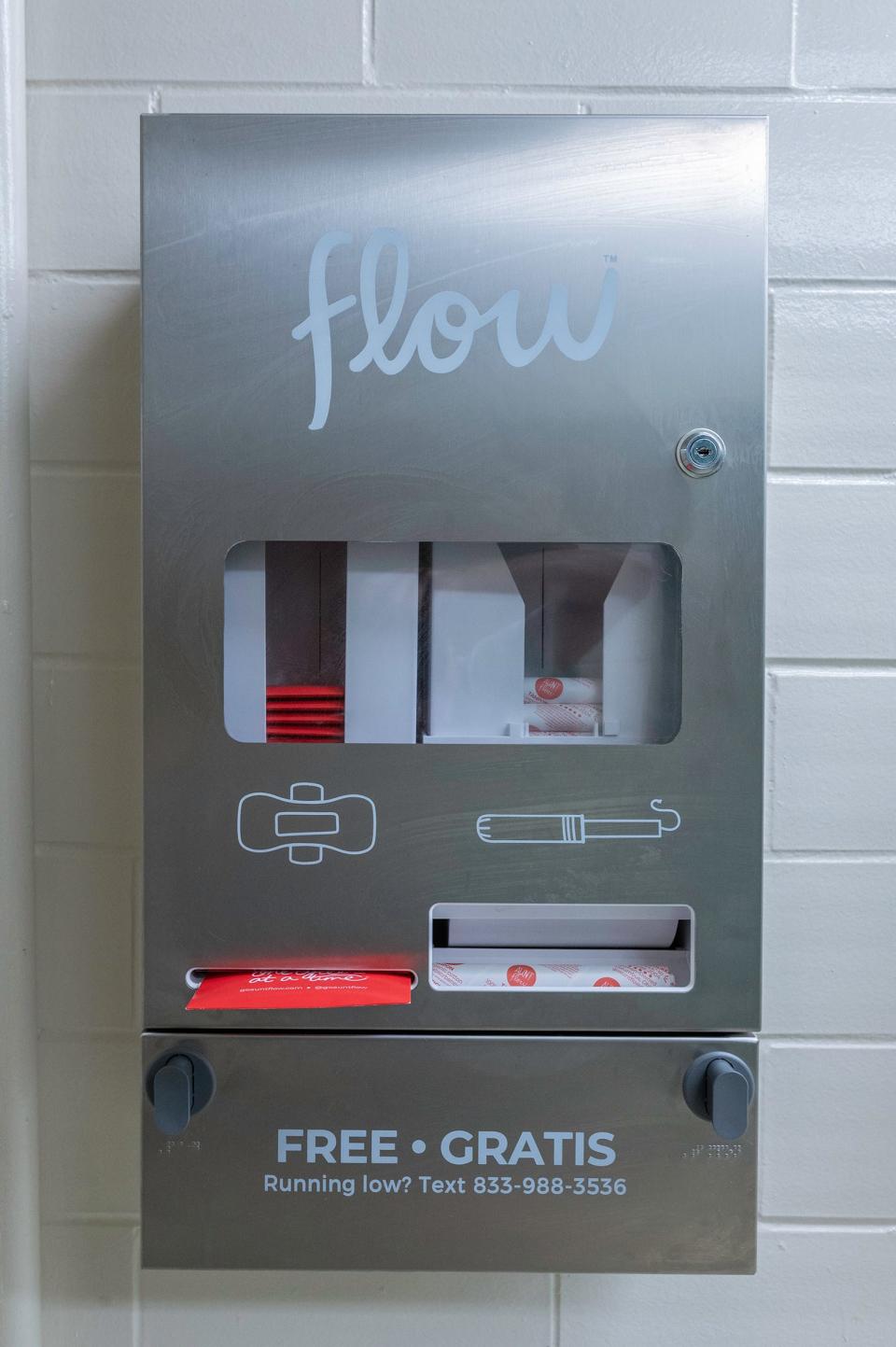Free menstrual products may become available in all municipal bathrooms
City-owned bathrooms could soon become more accommodating to Gainesville residents, helping to keep more money in their pockets.
City officials are exploring a policy that would initially provide free sanitary products in all municipal bathrooms and, possibly, later expanding to all public buildings including public schools or other county- or state-owned facilities.
Products would mostly include menstrual hygiene items, such as pads and tampons.
Single-family zoning gone: Gainesville commissioners eliminate single-family zoning citywide after split 4-3 vote
No to West End: Alachua County Commission votes down proposed redevelopment of West End golf course
Gainesville's next mayor will be Ward or Bielarski: How do they stack up to each other?
The proposal was spearheaded by Commissioner Reina Saco, who said that she first learned of the issue after reading several articles out of Ann Arbor, which is one of the first cities to pass legislation requiring the provision of menstrual products in public restrooms.

“I really brought this about as we were having conversations on how to best expand what the city does regarding health care,” Saco said. “I think this is one small way that we can enhance the public health of our community.”
Essential amenity
The proposal was unanimously supported during a recent general policy committee meeting. City staff is now working to create a plan on how to dispense the products, while determining the associated costs.
For the past decade, government officials nationwide have considered providing no-cost sanitary products in public bathrooms to help lower-income families afford these essential products, which city staff said can help to reduce the spread of bloodborne pathogens and diseases.
“We don’t ask people to bring their own soap to the bathroom,” Commissioner Harvey Ward said. “We don’t ask people to bring their own toilet paper to the bathroom. I don’t know why we ask people to bring their own menstrual products to the bathroom.”
Officials say the average menstruating person spends over $1,700 in products during their lifetime and around $300 per year.
“This needs to be a baseline amenity,” Mayor Lauren Poe said. "I feel like it should be in all our public restrooms.”
Potential dispensary locations include Depot and Westside parks, Porters Community Center and city pools, among others.
The measure could later include providing free products in all public school restrooms countywide.
City staff cited the Alachua County Public Schools Partners in Education Program as a conduit to extending the proposal.
"This program has present and past partnerships that have collected personal hygiene items for students, creating the potential to source products through this program to potentially scale this ordinance to school systems," a city staff report read.
The pros and cons
Some advantages offered by the proposed policy include restroom necessities becoming more accessible to citizens, especially those with low incomes.
Nearly 30% of Gainesville residents are living in poverty and 64% of low-income participants in a 2019 study said they were unable to afford menstrual hygiene products in 2018, according to research by Annamarie Elliott, a city policy research fellow.
Of the 52% of people living in Gainesville that were assigned female at birth, those between ages 18 and 24 make up the largest demographic living in poverty, according to the 2020 U.S. census.
Potential disadvantages involve the misuse of the provisioned products and environmental impacts from waste management.
As for product misuse, Riley Moon, an advocate of the plan, said that, “We live in society that stigmatizes the menstrual cycle. We need to start the normalization process and the only way to do that is to start.”
Regarding potential impacts to the environment, Moon said, “These products are getting used regardless; as of now this often comes at the cost of those finances being used elsewhere: transportation, rent, food, other medical expenses.”
Javon L. Harris is a local government and social justice reporter for The Gainesville Sun. He can be reached by phone at (352) 338-3103, by email at jlharris@gannett.com or on Twitter @JavonLHarris_JD.
This article originally appeared on The Gainesville Sun: Free menstrual products could soon be stocked in Gainesville restrooms

